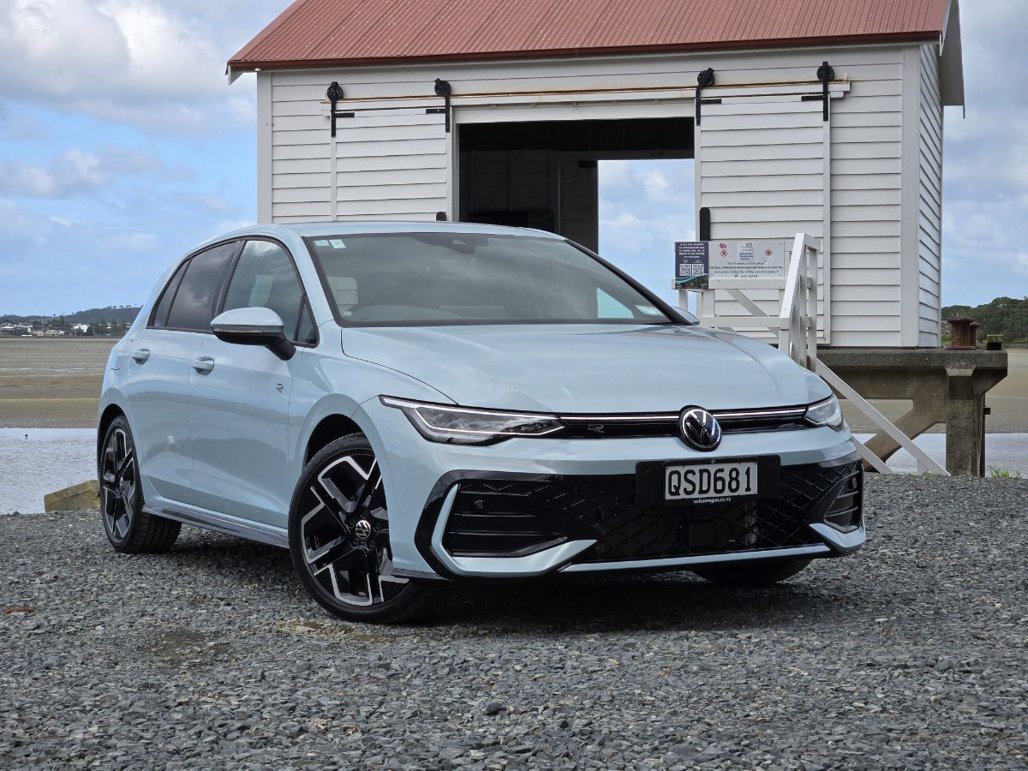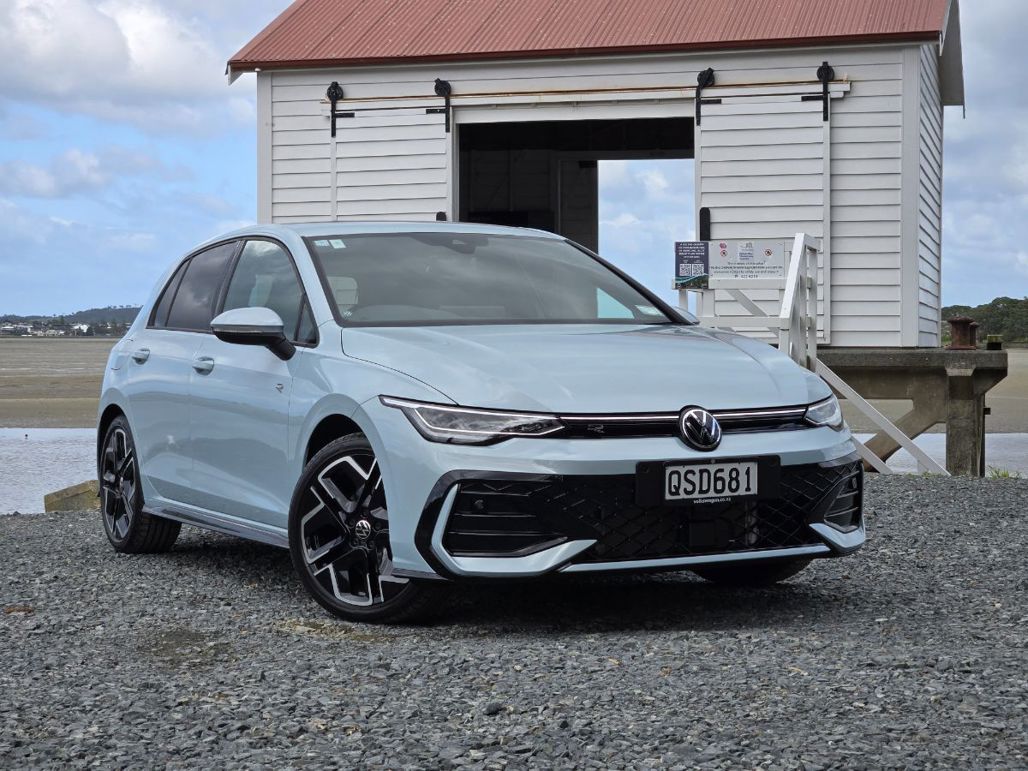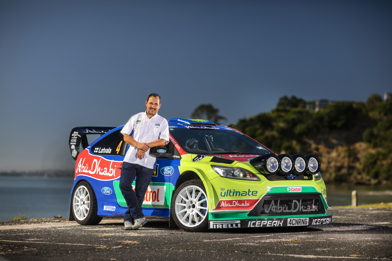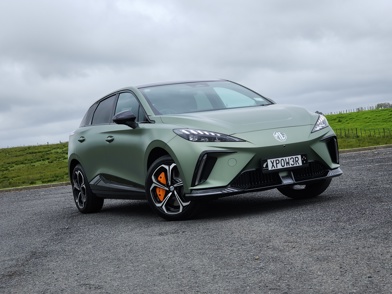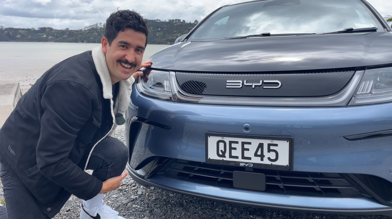Volkswagen is known for being restrained in the extreme at times, but the Golf 8.5 facelift really is hiding in plain sight.
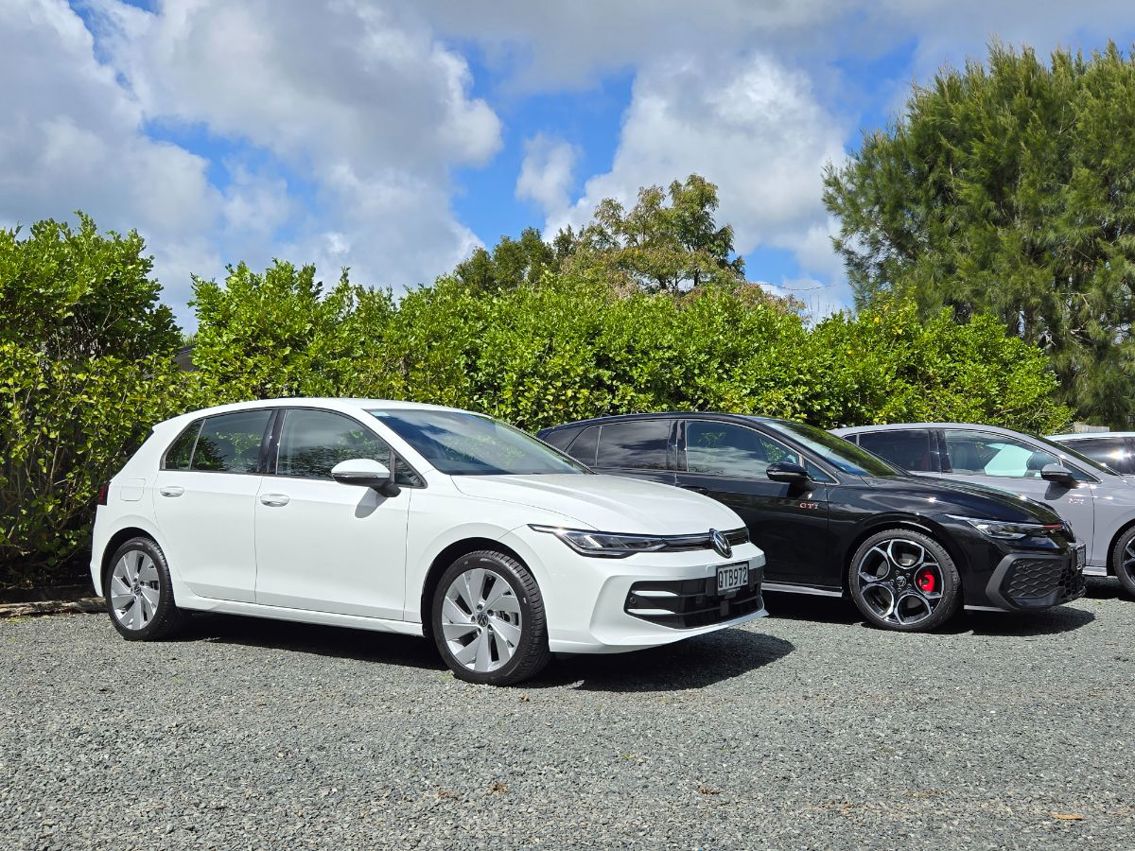
The headlights have slightly less of a double-bubble shape at the bottom and the tail-lights have an extra line behind the lens or something. Apparently.
The most obvious change might be the way the model designation badge now sits 100% on the front door for most models, as opposed to the back edge of the front guard. Job done.
There’s far more going on inside. The Golf 8 was the car that famously introduced Volkswagen’s radical new cockpit ethos to New Zealand buyers, which removed virtually all physical buttons and replaced them with touch screens, sliders and haptic controls. It was part of a global makeover partly to match up with the then-new ID models, which had the same treatment.
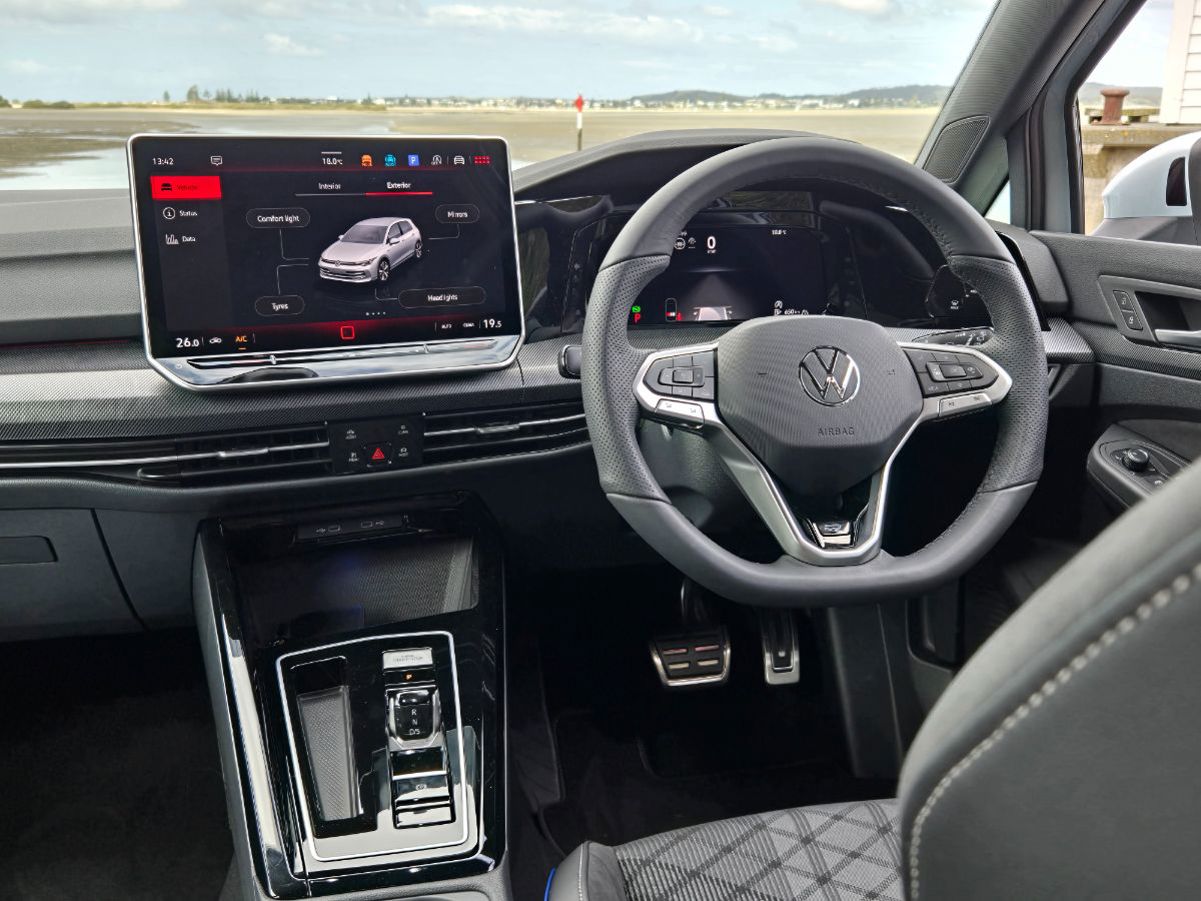
It didn’t go down super-well, partly due to some silly mistakes on VW’s part - stuff like failing to illuminate the segmented black touch-slider for audio volume and climate temperature, meaning it was pretty much invisible at night.
The previous Golf was the car that famously introduced VW’s radical new cockpit ethos to NZ buyers. It didn't go down super well.
Anyway, Golf is tangible evidence that VW has listened, because the facelift life model has reverted to very traditional physical buttons on the steering wheel (all expect the high-performance R coming next year). No excuses, just an admission that the people have spoken and the company made a mistake.
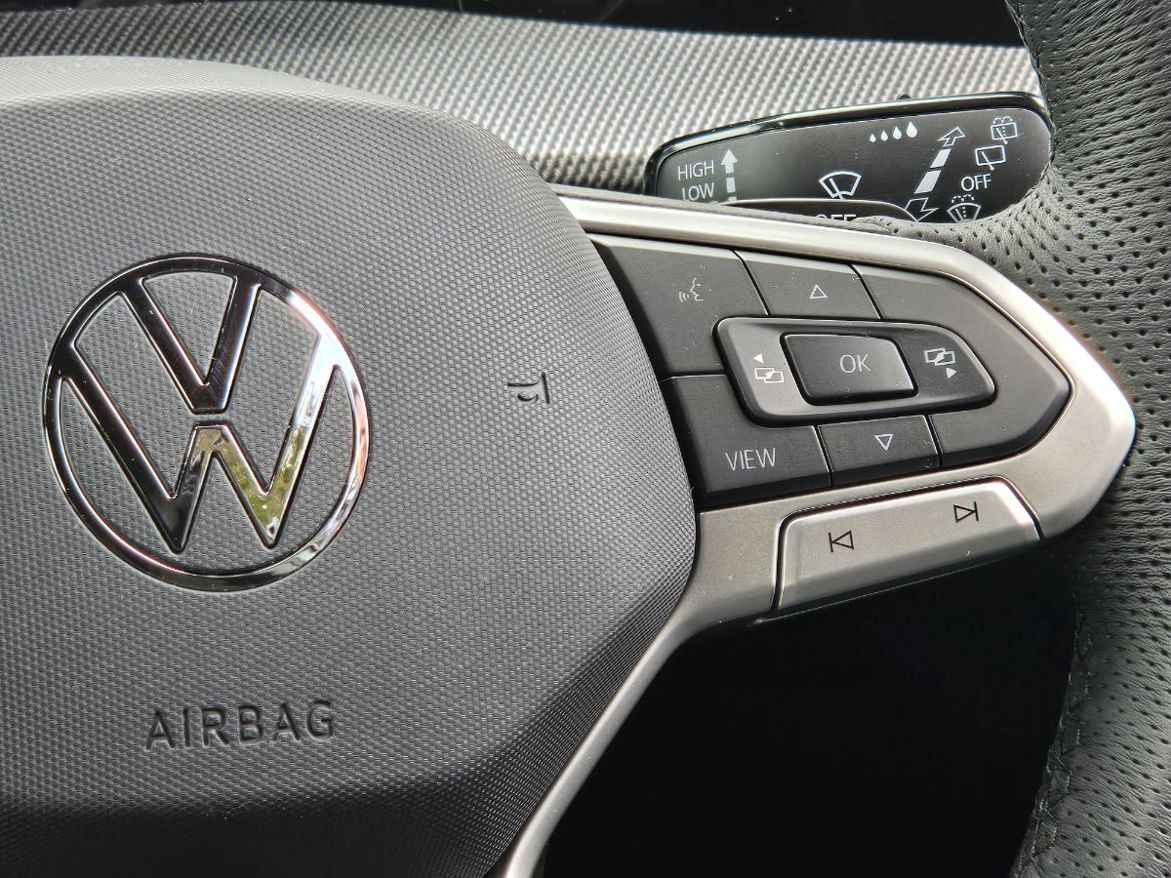
It retains the centre console screen (a new screen, though) underpinned by touch-sliders for audio and climate, but the scroll bar is now illuminated, so at least you can see it at night. The whole setup mirrors the latest Tiguan, although that’s an all-new model, whereas the Golf is a fairly modest upgrade from the previous version.
VW is known for being restrained in the extreme at times, but the Golf facelift really is hiding in plain sight.
What else is new? The entry Life model is back after two-and-a-half years away, which local VW people are very excited about. It’s $44,990.
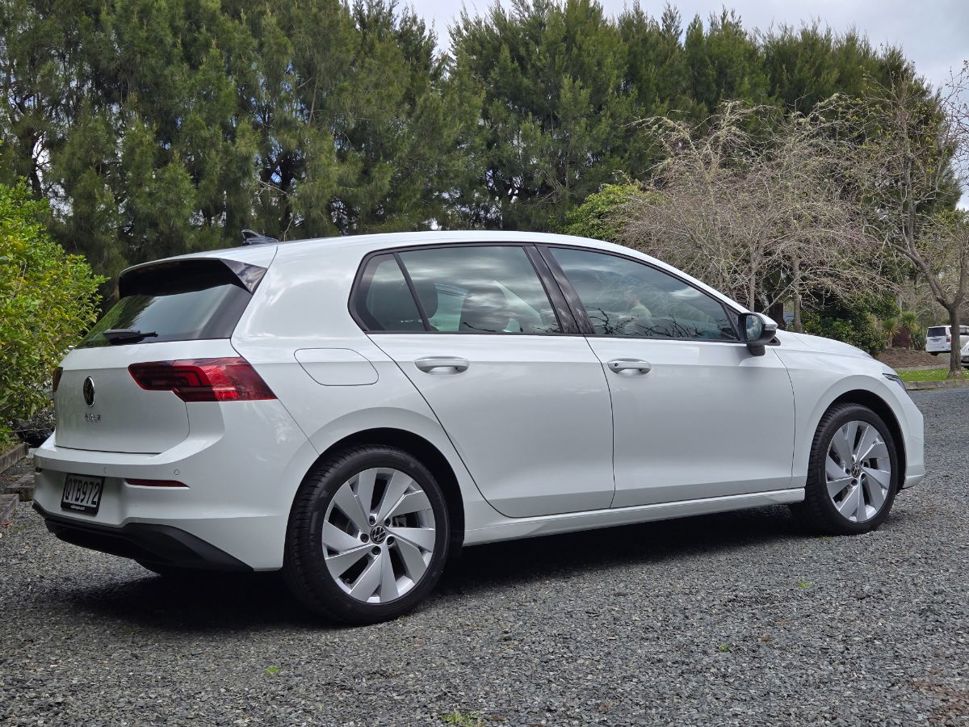
The R-Line has dropped $3k in price to $50,990, while the $67,990 GTI has gained 15kW in peak power and a fancy new light bar at the front that also illuminates the “VW” badge.
Golf remains a highly aspirational everycar for those who don’t want or need a SUV.
The Life and R-Line have VW’s familiar 1.4-litre turbo-petrol engine with 110kW/250Nm (same as before and same as Tiguan FWD), although a key difference is that they have a conventional 8-speed automatic instead of DSG.
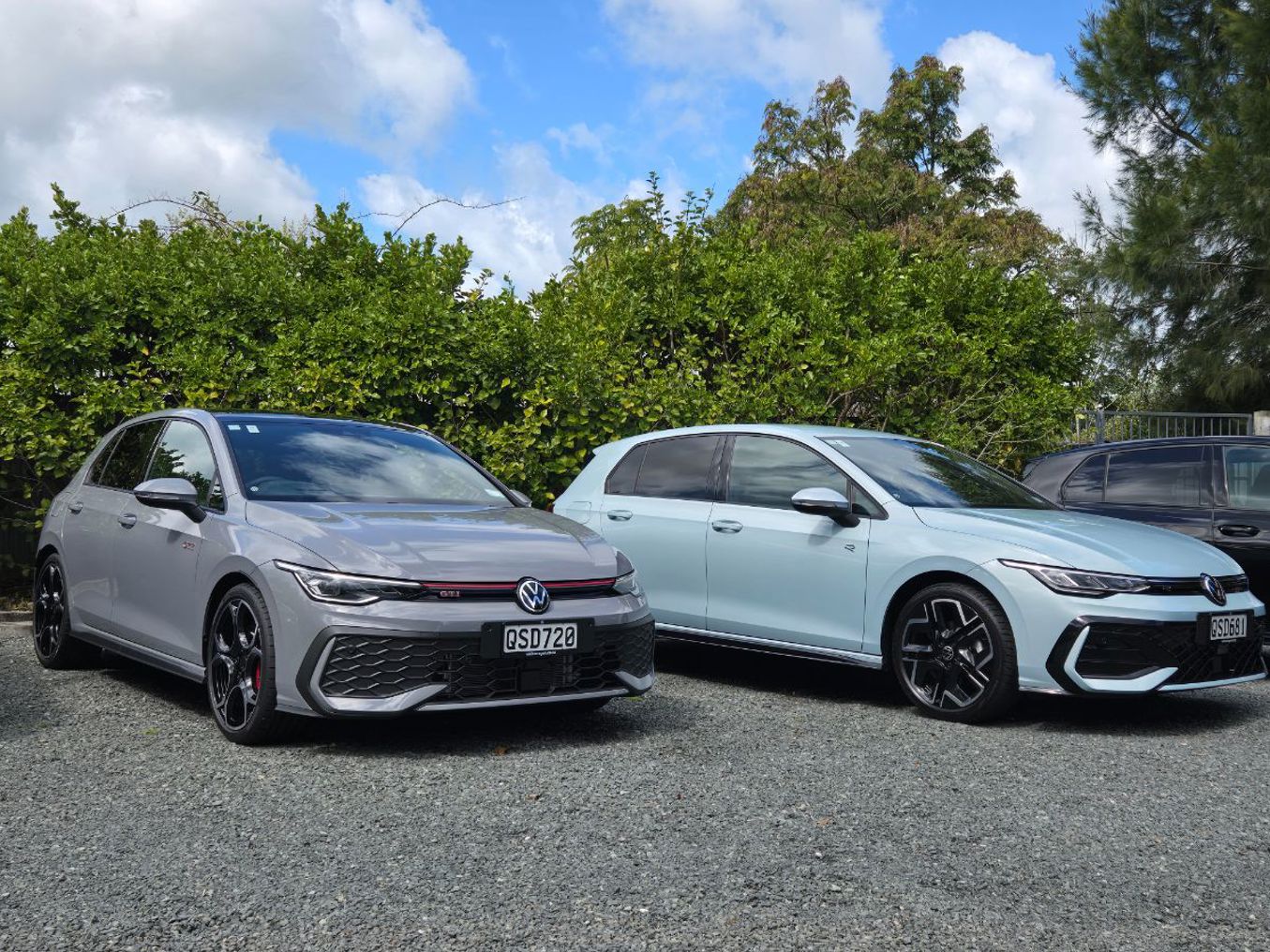
The DSG is reserved for the GTI, which is powered by a 2.0-litre turbo-petrol engine with 195kW/370Nm; that’s the same engine as the Tiguan R-Line AWD, although the GTI is of course front-drive. As hot hatches should be.
The safety package is very similar right across the range. New for all is a centre airbag and more fully featured adaptive cruise control system, while the R-Line and GTI also get rear cross-traffic alert and exit alert.
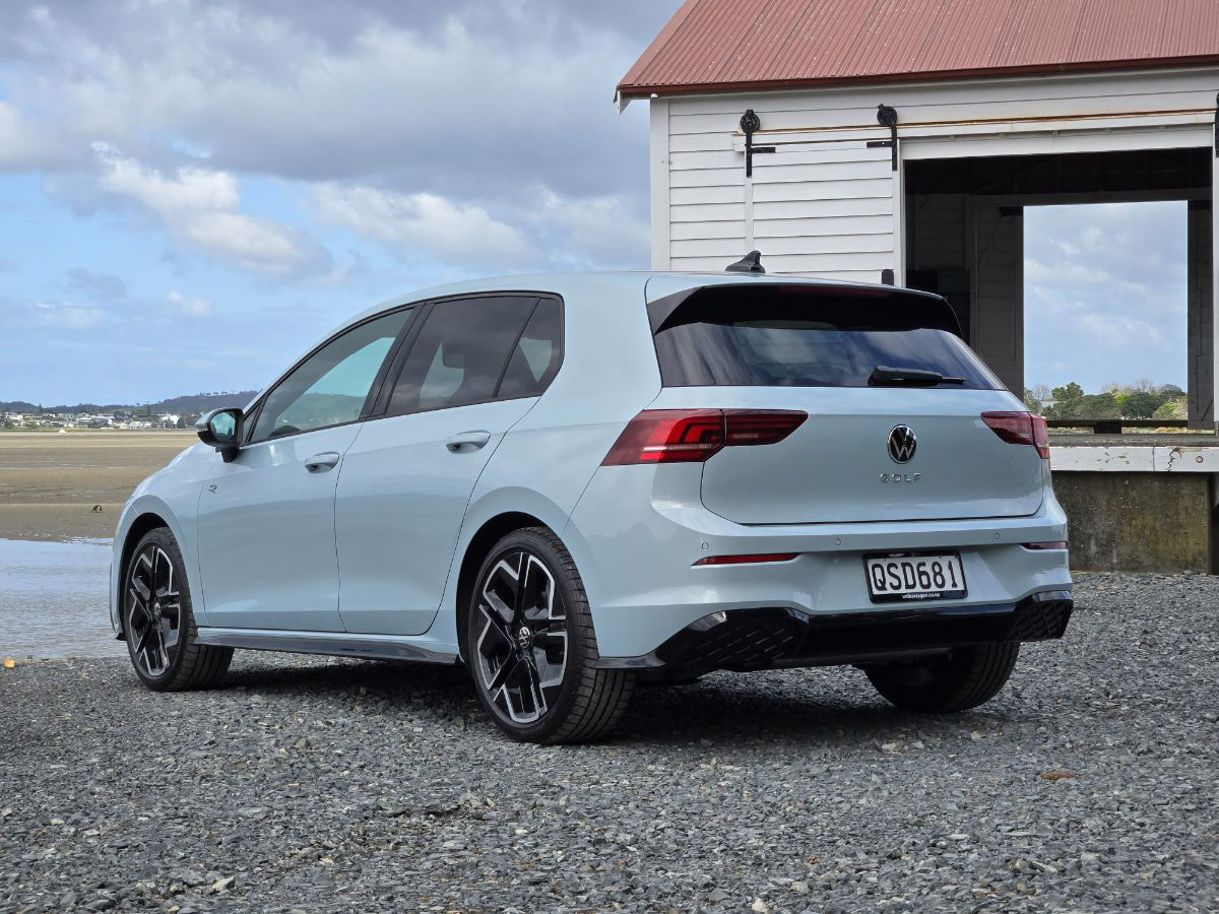
The infotainment OS is new across the range. The Life has a 10.4-inch screen and has gained wireless phone projection, while R-Line and GTI has a 12.9in unit.
Other upgrades once you move past Life include different body kits for R-Line and GTI, progressive steering, sports suspension, 3-zone climate, 30-colour ambient cabin lighting and unique upholstery: ArtVelours sports seats for R-Line and Scale Paper trim for GTI, which is really a nostalgic reference to the tartan seats of the original GTI.
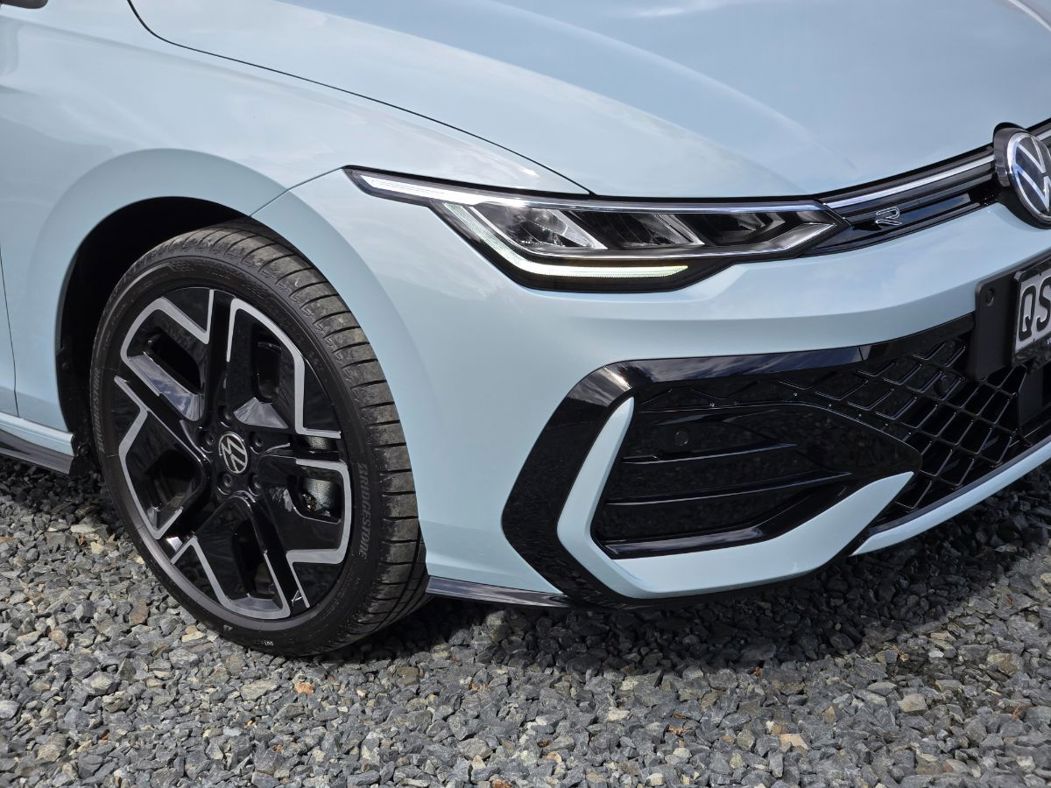
Wheel sizes step up from 17in to 18in to 19in as you move up the range, the GTI’s “Queenstown” design another retro-reference to the telephone dial-style-style wheels of the GTI V.
There are also Touring Packages for R-Line and GTI that add ergoActive leather front seats with power adjustment, heating and ventilation, plus Harman Kardon 480W sound system. The same package brings heads-up display for the R-Line (already fitted to GTI) and panoramic sliding/tilting roof for GTI.
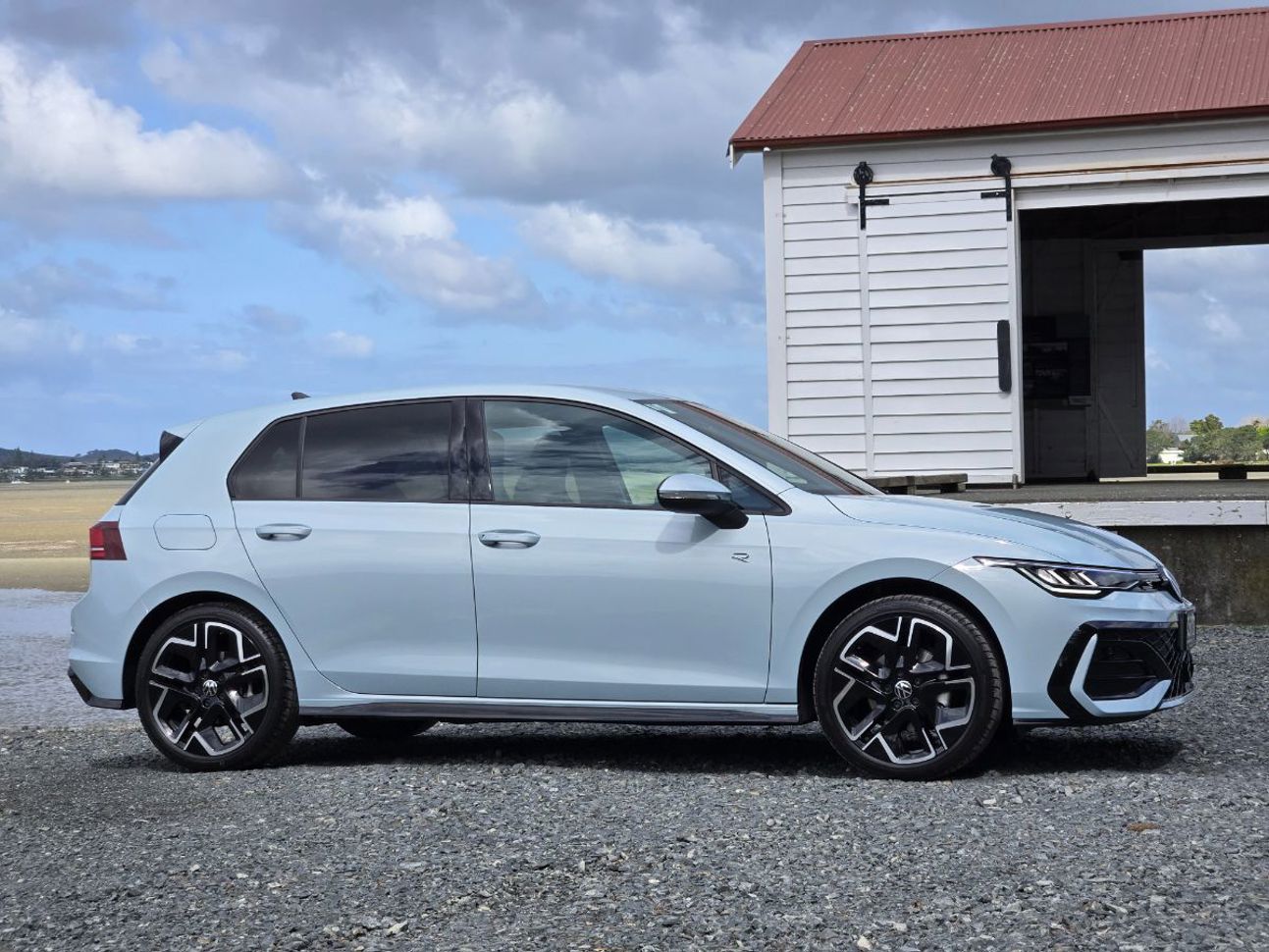
The GTI also gains adaptive chassis control (with a much broader range of control options than previously), electromechanical differential lock and heads-up display.
We only had a brief drive in the R-Line during the local launch event (mostly because we can’t read route instructions, rather than than not being allowed the others), but it was a good reminder of why this size of car is often called the “Golf class” in Europe.
The engine doesn’t offer any particular USP but it’s perky and thrifty (7.0l/100km) and the 8-speed automatic is still lively. The R-Line has sports suspension but it was still quite compliant on some pretty bumpy backroads; Golf remains an aspirational everycar for those who don’t want or need a SUV.
Golf accounts for 25% of VW NZ new-vehicle sales, so it’s not quite as important as Tiguan (although they have a lot in common and together they make up 60% of the brand’s sales). But it does have an even broader reach because it’s been around so long; there are more than 20,000 Golfs on NZ roads and half of those are in VW NZ’s database.

